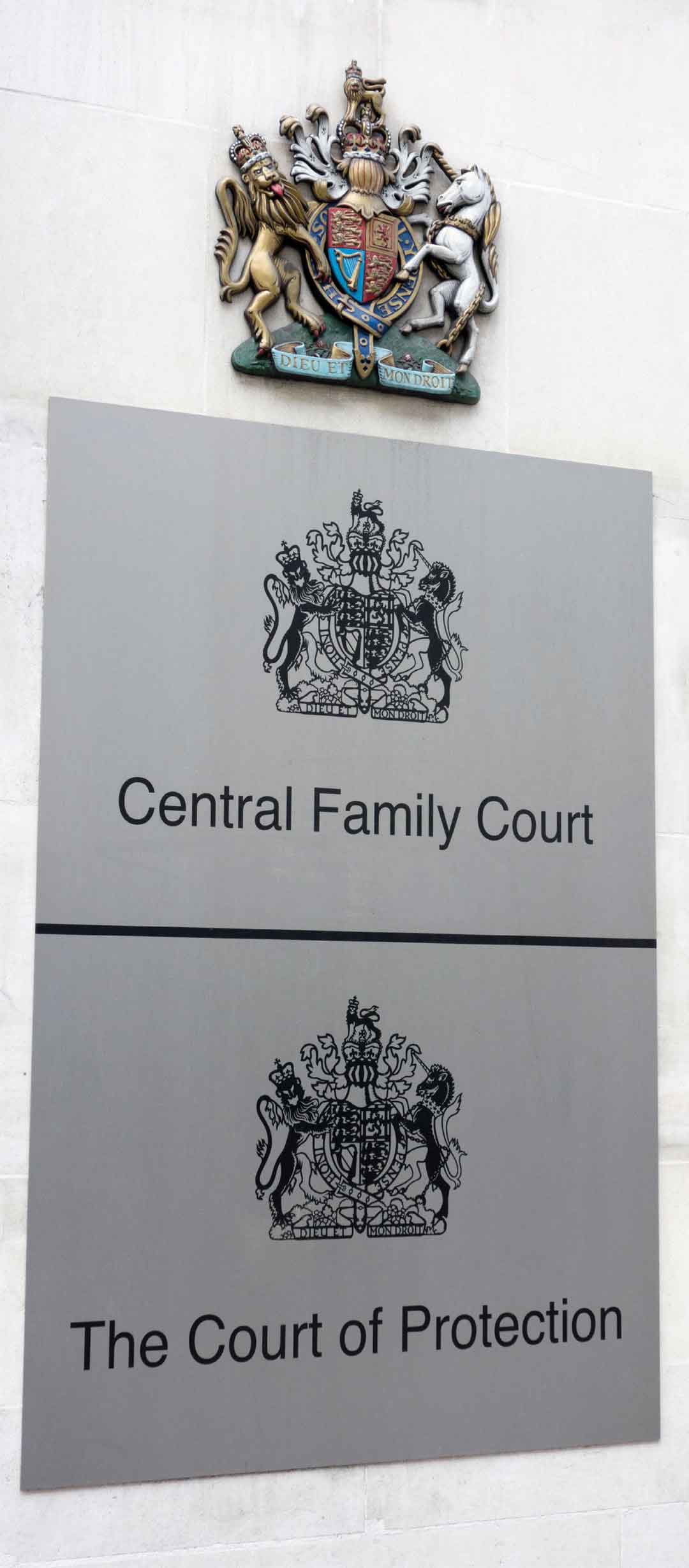Retired Senior Judge Lush: an exit interview
As retired SJ Lush began his retirement, he spoke to CILEx Journal about his career and legacy – and we found out why he was described by an award-winning legal blog as having ‘probably the best case load in English justice’.*

About the author
Nicola Laver is a freelance legal journalist and writer.
B y his own admission, retired SJ Lush - one of the most respected judges in recent times - has a special place in his heart for Chartered Legal Executives borne out of a long relationship with CILEx. As a solicitor who went on to change the legal landscape of the Court of Protection (CoP), retired SJ Lush says that he learnt far more as a trainee from (then) Legal Executives than he ever did from solicitors. His has been a judicial career spanning three decades in, arguably, one of the most fascinating and challenging areas of legal practice today.
When I was in private practice, I dealt mainly with wills, trusts, estates, drafting and registering enduring powers of attorney (EPAs), and making applications to the CoP. On being appointed as Master of the Court of Protection in April 1996, I was immediately thrown in at the deep end and expected to make decisions on the top-of-the-range personal injury and clinical negligence cases in England and Wales.
CoP work is often an intensely human area of practice in which you, as practitioner, can make a vast difference to people’s lives, hopefully for the better. Enabling people to make decisions for themselves, and assisting them to achieve their full potential, can be very rewarding in terms of job satisfaction.
It helps if you have certain qualities. Communication skills, compassion and courtesy have a role to play, as does the need to be approachable, creative, flexible and willing to take risks. But probably the most important attribute is practical common sense. Two of the finest CoP practitioners in the country are solicitors who were formerly Chartered Legal Executives – both have all of these qualities in abundance.
There is a variety of reasons. For example, demographically, there’s a continuing increase in the proportion of very old people in our population, and improvements in healthcare and living conditions mean that people are living longer.
In addition, the process of deinstitutionalisation since the 1980s means that many people, who were formerly institutionalised, are now living independently in the community and need various forms of legal support and protection. Advances in medical science now enable people - such as accident victims and stroke victims - to survive, often with their mental capacity impaired, who would formerly have died.
Then there’s the development of civil liberties and human rights, particularly disability rights, older people’s rights and even the right to die. There are also more options available than in the past, for example, EPAs, lasting powers of attorney (LPAs) and living wills. A growing awareness of the nature and extent of financial abuse is also a factor.
There is also a trend towards niche areas of the law. I know of many solicitors and Chartered Legal Executives who do nothing but CoP work: that would have been unthinkable 20 years ago.

Yes and no: there are clear benefits, partly because attorneys were required to notify family members of their intention to register an EPA and - because family members had a right to object to registration - the legislation had unintentionally created additional and often undesirable litigation. Another concern was that attorneys weren’t always registering EPAs when they were supposed to, and unregistered EPAs were the primary source of financial abuse.
On the other hand, we have not removed the underlying problems but merely shifted them elsewhere. Family members who no longer have an opportunity to object to the registration of a power, now raise complaints with the Office of the Public Guardian on the way that attorneys are exercising their powers. And, notwithstanding the registration process bringing LPAs into the public domain, financial abuse by attorneys still exists and is steadily increasing.
Yes, I think so: 18 of the 43 judgments I published on the BAILII website last year were reported in the national, international and regional press. These were mainly stories involving financial abuse, and were reported under long-winded but nonetheless eye-catching headlines, such as ‘Husband stripped of control of aristocrat wife’s fortune after spending £80,000 of her money on a flat for his Iraqi lover while his spouse was left in a nursing home’ and ‘The ‘repugnant’ son who charged his own MOTHER £400-a-day for visiting her care home’.
However, it took me three times longer to write a judgment for publication on the BAILII website than it did to write a judgment purely for the benefit of the parties and their legal advisers. You are writing for an entirely different audience (and you know that someone like Brian Farmer of the Press Association will be hovering to pick up certain stories as soon as the judgment is published!).
I had a number of big money cases, including that involving a billionaire who made a LPA. He had included some very complicated provisions which the Public Guardian refused to register on the basis that he felt they were unduly onerous. However, I was persuaded that what the client sought to achieve was really no different from how the sovereign would wish to be treated in the event of there being a regency. I therefore directed the Public Guardian to register the LPA.
My favourite big money case dates back to 1998 and involved a file so thick it had clearly been with the court for many years (the thin layer of dust on it showed not much had happened recently!). The file contained a proposed agreement, from Brown Cooper solicitors in Bloomsbury, in acceptance of the Walt Disney Corporation’s offer of £200m to acquire the rights to Winnie the Pooh. The patient was Clare Milne, the granddaughter and only surviving descendant of the author, A A Milne. Clare Milne was born in 1956 with cerebral palsy, and at the time was living in a residential care home in Exmouth. She was entitled to just oneeighth of the £200m and, in 2002, I approved the establishment of the Clare Milne Trust. The trust makes grants to charities and not for profit organisations in Devon and Cornwall, providing support for people suffering from physical or mental disabilities.
Sadly, financial abuse cases are not uncommon, and one notorious case – a pathetic attempt at abuse – arose from a letter I received, in 2000, from David Rundle. He was an inmate at HM Prison Ford in Sussex for murdering his wife.
Rundle objected to the professional receiver appointed by the court to manage his late mother’s property on the basis that she had appointed him under an EPA years before, and therefore he had a prior right to manage her property and affairs. He sent me a copy of the EPA, which was handwritten on lined notepaper, very similar to the lined notepaper issued in prisons; it was dated 7 March 1978.
In my reply, I thanked Rundle for sending me a copy of the EPA, but regretted that I couldn’t accept it for registration because it wasn’t in the form prescribed by the Lord Chancellor. I also asked him to congratulate his mother for having the foresight to anticipate the Enduring Powers of Attorney Act 1985 by seven years!
Dame Iris Murdoch, the novelist and philosopher, was another client for whom I had to make a decision. Mrs Jean Iris Bayley (as was her real name) started to show symptoms of dementia in 1994. In February 1997, she made an EPA appointing her husband to be her sole attorney. It was registered in April 1998, and on 21 September that year I made an order authorising her husband, Professor John Bayley, to execute a statutory will on her behalf. I distinctly remember the medical certificate, in which Dame Iris’s GP certified that she lacked the capacity to make a will ‘because she doesn’t even know the name of her husband’s college!’ She died on 8 February 1999.
To some extent, my qualities as a judge were no different from my qualities as a practitioner in this field. But I would like to think that I’ve also brought compassion, courtesy and approachability to the CoP. When I was Master of the CoP (pre-the Mental Capacity Act [MCA] 2005), I had to approve all damages awards made to patients of the CoP. I usually did so by e-mail, and had a reputation for being the most approachable judge in the country. Counterintuitively, the procedures under the MCA made me far less accessible. It is essential that people under the court’s jurisdiction should have unimpeded access to a judge.
I hope I’ve also brought a measure of creativity, flexibility and practical common sense to my work. An often-quoted illustration of this is Re AK (Gift application) [2014] EWCOP B11, where I refused to give the parents of a child with cerebral palsy a gift of £150,000 to purchase a house in Pakistan. Instead, I gave them a loan for that sum, together with annual payments of £15,000 over a 10-year period to pay off the loan, thereby taking advantage of the normal expenditure out of income exemption for inheritance tax purposes.
We need to consider updating the MCA within the next five or so years (particularly, removing the word ‘Mental’ from its title). After the MCA came into effect, the UK ratified the UN Convention on the Rights of Persons with Disabilities [‘ the disability convention’ ]. In 2014, a Ministry of Justice-commissioned investigation concluded that the MCA does not comply with the [disability rights] convention for two main reasons. Firstly, the definition of ‘mental incapacity’ in section 2(1) of the MCA violates the antidiscrimination provisions of article 5 [of the disability convention]; and it restricts mental incapacity to those who suffer from ‘an impairment of, or a disturbance in the functioning of, the mind or brain’. Secondly, the best-interests decision-making framework of section 4 of the MCA fails to satisfy the requirements of article 12 (4) of the [disability] convention, which requires safeguards to ensure respect for the rights, will and preference of disabled persons in matters pertaining to the exercise of legal capacity.
The UK needs to ratify the Hague Convention on the International Protection of Adults (which has already been ratified by Scotland). This would require secondary legislation to enable the international recognition of both protective measures made by foreign courts and tribunals, and LPAs.
As a tongue-in-cheek digression, these days there are too many court rules; the hearings go on for far too long; and the court’s orders are becoming increasingly lengthy. I would welcome a rule that said: ‘No order of the Court of Protection should be longer than two pages, and no hearing in the court should last longer than two hours’. If the European Court of Human Rights can dispose of hearings in 90 minutes, on average, so can the CoP!
I am thoroughly enjoying my retirement – and being released from an awesome responsibility. However, I have accepted an appointment as a trustee of the charity, Action on Elder Abuse, which recently launched a campaign to introduce a new aggravated offence of elder abuse. Much of my recent work has involved applications by the Public Guardian to remove deputies or attorneys for contravening their authority or failing to act in the best interests of an individual who lacks capacity. My aim is to assist the charity on raising awareness of elder abuse and how we can prevent it.
* Visit: https://suesspiciousminds.com/tag/senior-judge-lush